No products in the cart.
Quality Egg Incubator: The Secret to Higher Hatch Rates
Superhatch Poultry Equipment is committed to supporting poultry farmers across Kenya with high quality hatchery solutions. In this guide we explain what an incubator is, how it works, the different types available (solar, battery, electricity; manual vs automatic), capacity ranges, how to choose the right incubator, and our after-sale services (supply, installation, warranty). We also answer common questions: how egg incubators work and which incubator is best.
Whether you are a smallholder raising chickens in Machakos or a medium-scale farmer in Kisumu, this guide will help you make an informed decision.
Our Egg Incubators
Solar powered 56 Eggs incubator
Original price was: KSh12,300.00.KSh11,990.00Current price is: KSh11,990.00.Solar powered 64 Egg incubator
Original price was: KSh14,300.00.KSh13,500.00Current price is: KSh13,500.00.68 egg chicken incubator
Original price was: KSh14,200.00.KSh13,999.00Current price is: KSh13,999.00.Solar powered 104 eggs incubator
Original price was: KSh18,765.00.KSh16,999.00Current price is: KSh16,999.00.Solar powered 128 eggs incubator
Original price was: KSh22,000.00.KSh20,500.00Current price is: KSh20,500.00.Solar powered 136 eggs incubator
Original price was: KSh25,000.00.KSh22,000.00Current price is: KSh22,000.00.Solar powered 192 eggs incubator
Original price was: KSh30,000.00.KSh27,999.00Current price is: KSh27,999.00.204 chicken egg incubator
Original price was: KSh29,500.00.KSh28,000.00Current price is: KSh28,000.00.Industrial 264 eggs incubator
Original price was: KSh53,000.00.KSh50,000.00Current price is: KSh50,000.00.Solar powered 300 eggs incubator
Original price was: KSh55,000.00.KSh52,999.00Current price is: KSh52,999.00.
What Is an Incubator and Why It Matters
An incubator is a controlled environment device used to hatch eggs by replicating the conditions under a brooding hen: correct temperature, humidity, ventilation, and turning of eggs. For poultry farmers, a good incubator allows you to increase your chick production, reduce dependence on natural brooding, and scale up operations more predictably.
Without a reliable incubator, hatching success depends on environmental conditions and manual care — variables that often reduce hatch rate. A quality incubator boosts consistency, reduces losses, and can pay for itself with improved yields.
How Egg Incubators Work
Understanding how an incubator works is key to choosing and using one properly. Here is a breakdown:
- Temperature control
The incubator maintains a steady temperature (for chickens, ~ 37.5 °C) via internal heating elements or heat sources, controlled by a thermostat or microcontroller. Too low or too high a temperature harms embryo development. - Humidity regulation
Maintaining humidity is crucial: if it’s too dry, the eggs lose too much moisture; if too wet, gas exchange is impaired. Incubators often use a water reservoir, automatic water inlet, and ventilation to manage humidity levels. - Ventilation / gas exchange
Embryos consume oxygen and produce carbon dioxide. The incubator must permit fresh air exchange (via vents or fans) at controlled rates to avoid buildup of CO₂ and ensure adequate oxygen. - Egg turning (rotation)
In natural incubation, a hen shifts the eggs. In an incubator, mechanical egg-turning (automatic or manual) tilts the eggs periodically so the embryo doesn’t stick to the shell membrane and so heat distribution is uniform. - Monitoring and alarms
Modern incubators include sensors (temperature, humidity) and sometimes alarms or alerts if conditions deviate from set thresholds.
Over the incubation period (for chickens ~ 21 days), the incubator keeps these conditions stable until hatching. Then, in the final days, humidity is often increased slightly and turning may stop to allow chicks to break through.
Types of Egg Incubators Available in Kenya
In Kenya, poultry farmers can choose among different power-modes, feature sets, and levels of automation. Here are the main categories, with pros/cons and local relevance.
1. Power Source Types: Solar, Battery, Electricity
Electricity-Powered Incubators
- Most common type, particularly in areas with stable grid power.
- They plug into mains (e.g. 220 V AC) and rely on internal heaters, fans, controllers.
- Pros: reliable where electricity is stable; simpler design; lower initial complexity.
- Cons: failure during power outages (unless backed up), power cost.
This is still the default “go-to” model for many farmers near towns.
Battery-Powered Incubators
- Use DC battery power (often 12 V or 24 V systems).
- Good as backups or in off-grid or semi-grid settings.
- Pros: can run during power cuts, more portable.
- Cons: battery size and cost, limited runtime, battery maintenance and replacement.
Battery-powered incubators are often paired with solar charging systems, so they switch to battery when grid fails.
Solar-Powered Incubators
- These incubators use solar panels to generate electricity, sometimes with battery storage, to run heating, fans, control systems.
- In Kenya, solar incubators are marketed (for example, Superhatch offers solar incubators rated ~ 80 W and operate on 12 V DC, requiring a ~ 250 W solar panel + a ~ 200 Ah battery for continuous operation).
- Pros: ideal for rural, off-grid or unreliable grid areas; lower long-term running cost; independent of mains electricity.
- Cons: higher upfront cost (solar panels, battery), need for proper sizing, dependence on sun (must account for cloudy days).
Solar incubators have become popular in remote or peri-urban farms where grid power is either unreliable or unavailable.
Hybrid systems often combine solar + battery + grid input, switching automatically among sources.
2. Automation Levels: Manual vs Automatic vs Semi-Automatic
Manual Incubators
- The farmer must manually regulate temperature, humidity, and turn the eggs (e.g. by hand, a few times daily).
- Pros: low cost, simple.
- Cons: labor intensive, higher risk of human error, lower consistency, lower hatch rate.
Manual incubators may suit hobbyists or very small scale setups, but are less ideal for commercial operations.
Semi-Automatic Incubators
- Some features are automated (e.g. automatic turning or humidity control), but others still require manual input or adjustments.
- They represent a transitional option between manual and full automation.
Fully Automatic Incubators
- All critical functions (temperature regulation, humidity control, egg turning, alarms) are automated via microcontrollers or PLC systems.
- Pros: minimal intervention, higher consistency, better hatch rates, less labor.
- Cons: higher upfront cost, more electronics to maintain or repair.
Many models marketed in Kenya (for instance, via Superhatch) are fully automatic AC/DC or solar models.
In practice, most serious poultry farmers in Kenya choose automatic or semi-automatic incubators to minimize risk and labor.
3. Capacity / Size Variations
Egg incubators come in various capacities to suit small, medium, or commercial operations:
- Small-scale / hobby size: 30–64 eggs
- Mid-size / small farm: 128, 192, 300 eggs
- Commercial / large scale: 500, 1,000+, 2,000+ eggs
- For example, large multifunctional incubators (3,000 eggs or more) are available globally, with ~ 4–6 hour battery backup and full automation.
- Specialty / modular systems: Some operations use modular incubators arranged side by side for flexibility.
When choosing capacity, match your projected egg-laying scale, space, and growth plans. Overbuying capacity you won’t use is wasteful; underbuying restricts growth.
How to Choose the Right Incubator
Selecting the ideal incubator involves careful evaluation of multiple factors. Here’s a guide:
| Factor | Considerations / Tips |
|---|---|
| Power Reliability & Source | In your location, how stable is grid electricity? If frequent outages, favor solar or battery support. |
| Capacity / Scale | Choose based on current and projected needs. Allow for growth but avoid huge overcapacity you won’t use. |
| Automation Level | For hands-off operation and scale, a fully automatic incubator is preferred. If tight budget, semi or manual may suffice. |
| Temperature & Humidity Control Accuracy | Controllers should maintain ±0.1 °C (or tight band) and manage humidity reliably. |
| Egg Turning Mechanism | Fully automatic turning is desirable; check mechanism durability. |
| Ease of Cleaning & Maintenance | Designs that separate power/control units from the egg chamber help with cleaning. |
| Spare Parts & Local Support | Ensure you have access to spare heating elements, sensors, fans, controllers locally. |
| Warranty & After-Sales Support | Warranty terms, technical support, repair services matter deeply. |
| Cost & Return on Investment | Calculate how the incubator’s cost compares to extra chicks you can produce, reduced losses, labor savings. |
As an example, for many Kenyan rural farmers, a solar + battery hybrid incubator with full automation in a mid-capacity range (e.g. 128–300 eggs) offers a strong balance of independence and performance.
Our Services at Superhatch Poultry Equipment
At Superhatch Poultry Equipment, we don’t just sell incubators — we provide end-to-end support so your investment is secure and productive. Here’s how we serve our customers:
1. Supply (Sales)
- We source high-quality incubators (manual, semi-automatic, fully automatic) suited for Kenya’s environment.
- We stock models in various capacities — from starter units to commercial hatchers.
- Because of our local presence, we can supply faster than purely imported vendors.
2. Installation & Commissioning
- After purchase, we will deliver the incubator to your farm location (within Kenya).
- Our technicians install, calibrate, and test the incubator, ensuring temperature, humidity, ventilation, and turning functions are correctly set.
- We train your staff (or you) on proper usage, maintenance, and troubleshooting.
3. Warranty & After-Sales Support
- We offer a warranty period (e.g. 12 months) covering manufacturing defects in controllers, heating elements, sensors, motors, etc.
- Should components fail, we supply replacements or perform repair (depending on situation).
- We also provide spare part kits (e.g. sensors, fans, heaters) for future maintenance.
- For technical issues over time, we offer remote support or on-site service (for customers in our reachable zones).
- We may offer extended warranty or service contracts for larger operations.
Because we believe support and reliability are as important as the hardware, our goal is for your incubator to deliver high hatch rates year after year.
Frequently Asked Questions
1. How do egg incubators work?
As outlined earlier, an incubator replicates the key conditions a brooding mother hen provides: steady temperature, correct humidity, fresh air exchange, and periodic egg turning. Sensors and controllers adjust heating and moisture to keep conditions stable, while ventilation and fans manage airflow, and mechanical systems rotate the eggs. Over the incubation period (e.g. ~ 21 days for chickens), the developing embryo grows, and in the final days, the incubator may adjust humidity or pause turning to facilitate hatching.
2. Which egg incubator is best?
There’s no single “best” incubator for all scenarios — what’s best depends on your situation. Here are guiding principles:
- For hobbyists or very small scale: a manual or semi-automatic small-capacity incubator (30–64 eggs) may be adequate.
- For farm / commercial users: a fully automatic incubator with good sensor control, reliable egg turning, and stable environment is preferred.
- In areas with unreliable or no mains power: a solar-powered or hybrid (solar + battery) incubator is advantageous.
- Match capacity to your egg supply and growth plan.
- Prioritize local support, spare parts availability, and warranty.
Thus, the “best” incubator is the one that fits your power environment, budget, scale, and support conditions — and that gives you the best return in reliable hatches.
Choosing the right incubator is a foundational decision for any poultry farming venture. With the right design (automatic functions, reliable controls, good power strategy) and capacity matched to your scale, an incubator pays you back in better hatch rates, reduced losses, and scalability.
At Superhatch Poultry Equipment, we stand behind our offerings — supplying incubators adapted to Kenya’s environment, professionally installing and calibrating them, and providing warranty and ongoing support to ensure your success.
If you are ready to choose an incubator for your farm, contact us today. We’ll help you match a model, size, and power setup to your location. Let’s hatch better together.


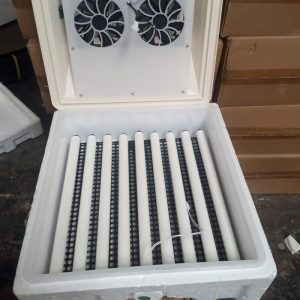


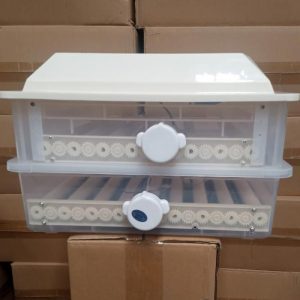

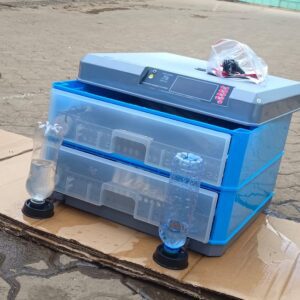
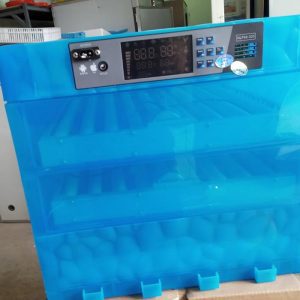


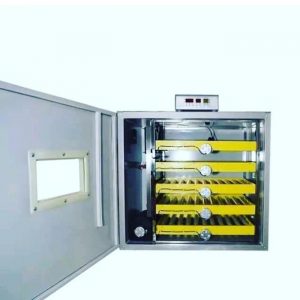
Add comment